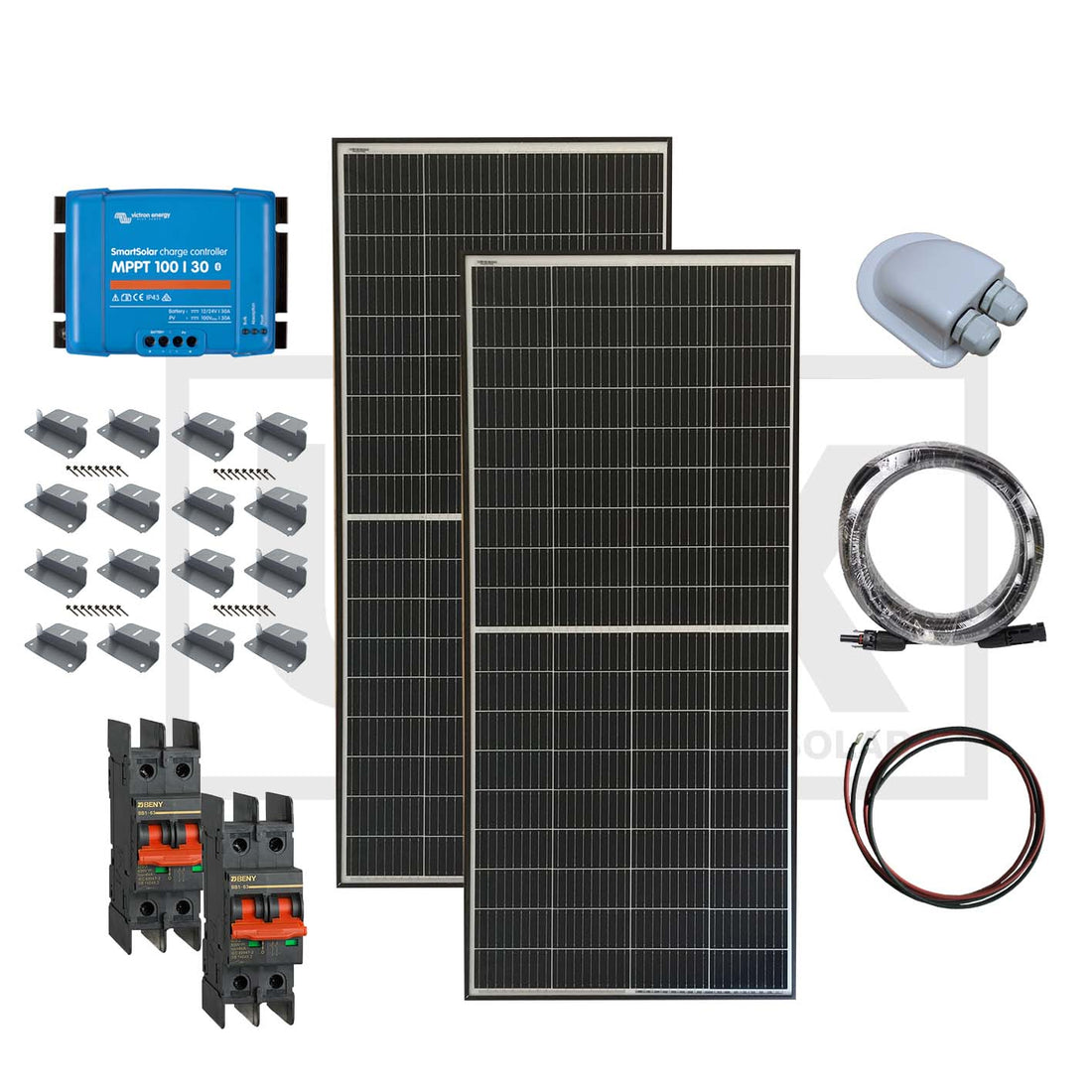If you’re thinking about going solar for your small off-grid setup, like a caravan, boat, or small cabin, you’re on the right track. At LUX Solar, we want everyone to have the Power to be Free™.
But with so many options out there, it can be tricky to pick the right solar kit. Fear not! Here are two effective methods to help you choose the best solar kit for your needs: focusing on the largest panels that will fit on your roof space and calculating your power requirements based on the appliances you'll be using.
Method 1: Maximize Your Roof Space with the Largest Panels
One of the most straightforward ways to choose a solar kit is to start with your available roof space:
Measure Your Roof Space:
- Start by measuring the dimensions of your roof or the area where you plan to install the solar panels. This includes length and width, but also consider any obstructions like vents or air conditioners that might limit where you can place the panels.
Choose the Largest Panels That Fit:
- Once you have your measurements, look for solar panels that fit within these dimensions. Generally, larger panels will generate more power, so maximizing the size of the panels within your roof space can give you a better overall energy yield.
LUX Solar has created a Roof Solar Maximizer Tool for this very purpose! Our drag-and-drop tool lets you visualize how different sized panels can be laid out on your roof, at the same time avoiding any obstacles, like vents, skylights, or antennas.
Consider Panel Efficiency:
- Not all solar panels are created equal. If you have limited roof space, consider high-efficiency panels that produce more power per square meter. Solar technology is improving constantly, and LUX Solar frequently upgrades its panel range to offer the highest-efficiency commercially available panels - worth considering if space is at a premium.
Installation:
- If you’re installing the panels yourself, ensure you have the right mounting hardware and follow the manufacturer's guidelines. LUX Solar kits come with suitable solar panel mounts, and an instruction manual on how to install these. For those not comfortable with DIY, professional installation might be the best route.
Method 2: Calculate Power Requirements Based on Appliances
For a more tailored approach, calculating your power requirements can ensure you get a solar kit that meets your specific needs. Here’s how to do it:
List Your Appliances:
- Start by listing all the appliances and devices you plan to run off your solar system. This could include lights, a refrigerator, a TV, or even a laptop.
Determine Power Consumption:
- Check the power consumption of each appliance. This information is usually found online, on the appliance's label, or in the user manual and is measured in watts (W). For example, a refrigerator might use 100 watts, while a laptop could use around 50 watts.
Calculate Daily Usage:
- To estimate daily power consumption, multiply the wattage of each appliance by the number of hours it will be used per day. For example, if you use a 100-watt refrigerator for 24 hours, it will consume 2,400 watt-hours (Wh) or 2.4 kilowatt-hours (kWh) per day. It’s wise to add a buffer to your calculations to account for inefficiencies and unexpected power use. A good rule of thumb is to add about 20% to your total power requirement.
- Based on your daily power consumption, choose a solar kit with a sufficient number of solar panels and an appropriately sized battery bank. For instance, if your daily consumption is 3 kWh, you might look for a solar kit that includes panels capable of producing at least 3 kWh per day, plus a battery bank that can store at least 3 kWh for cloudy days or nighttime use.
LUX Solar has created a Solar Calculator Tool for this very purpose! Just enter your appliances and our calculator will work out the minimum wattage of solar panels and battery storage required to run all of your appliances.
Final Thoughts
Choosing the right solar kit for your off-grid needs can greatly enhance your experience, whether you’re hitting the road in your caravan or powering your shed. By either maximizing the panel size to fit your available roof space or carefully calculating your power needs, you can ensure that your solar system will efficiently power your off-grid life.
Ready to get started with solar? Explore our range of solar kits today!

